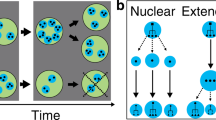Summary
Optimality approaches have been used to investigate the adaptiveness of human subsistence strategies mainly in hunter-gatherer societies. However the ‘static‘ optimality models used are not suitable for investigating the long-term costs and benefits of decisions, especially in societies where wealth is accumulated and hence resources gained in one year have an influence on future years. Here I use dynamic optimality modelling to investigate the adaptiveness of a subsistence strategy in the Gabbra, a nomadic pastoralist group. I show that herders forego short-term gain in favour of long-term household survival. This is done by herders sometimes manipulating the life histories of their sheep. In herds where the breeding rate has been slowed, by restricting ewes’ access to males, females have greater longevity, but fewer offspring per year, than in unmanipulated herds. Models maximising offtake from the herd predict that herd breeding-rate should never be slowed. Models maximising short-term household survival predict herd-breeding rate should always be slowed. Models of long-term household survival predict that herd-breeding rate should be slowed only by relatively wealthy households. This is the behaviour observed. Poor and wealthy house-holds adopt different behaviours, yet all are following optimal strategies for their own level of wealth, that maximise their long-term survival. This is the behaviour that would be predicted on the basis of evolutionary theory, given that a family takes many years to be raised.
Similar content being viewed by others
References
Bernus E (1988) Seasonality, climatic fluctuations, and food supplies (Sahelian nomadic pastoral societies). In: Garine de, Harrison G (eds) Coping with uncertainty in food supply. Clarendon Press, Oxford, pp. 319–336
Borgerhoff Mulder M (1991) Human behavioural ecology. In: Krebs JR, Davies N (eds) Behavioural ecology. Blackwell, Oxford, pp. 69–104
Cashdan E (ed) (1990) Risk and uncertainty in tribal and peasant economies. Westview, Boulder
Clutton-Brock TH, Albon SD, Guinness FE (1989) Fitness costs of gestation and lactation in wild mammals. Nature 337:260–262
Coughenour MB et al (1985) Energy extraction and use in a nomadic pastoral ecosystem. Science 230:619–624
Cronk L (1989) From hunters to herders: subsistence change as a reproductive strategy among the Mukogodo. Curr Anthropol 30:224–234
Dahl G, fnHjort A (1976) Having herds. University of Stockholm Ellis F (1987) Peasant economics: farm households and agrarian development. Cambridge University Press
Farmer G (1986) Rainfall variability in tropical Africa: some implications for policy. Land Use Policy 3:336–42
Gustafsson L, Part T (1990) Acceleration of senescence in the collared flycatcher Ficedula albicollis by reproductive costs. Nature 347:279–281
Hardin G (1968) The tragedy of the commons. Science 162:1243–1248
Hawkes K (1990) Why do men hunt? In: Cashdan E (ed) Risk and uncertainty in tribal and peasant economies. Westview, Boulder, pp 145–166
Hill K et al (1987) Foraging decisions among Ache hunter-gatherers: new data and implications for optimal foraging models. E thol Sociobiol 8:1–36
Houerou H le, Hoste L (1977) J Range Manage 30:183–189
Houston AI et al (1988) Dynamic models in behavioural and evolutionary ecology. Nature 332:29–34
Kaplan H, Hill K (1985) Hunting ability and reproductive success among male Ache foragers. Curr Anthropol 26:131–133
Kaplan H et al (1990) Risk, foraging and food sharing among the Ache. In: Cashdan E (ed) Risk and uncertainty in tribal and peasant economies. Westview, Boulder, pp 107–144
Lipton M (1968) The theory of the optimising peasant. J Development Stud 4:147–52
Mace R (1988) Gambling with goats (Pastoral Development network paper 28a). ODI, London
Mace R (1990) Pastoralist herd compositions in unpredictable environments: a comparison of model predictions and data. Agric Syst 33:1–11
Mace R (1993) Transitions between cultivation and pastoralism in sub-Saharan Africa. Curr Anthropol 34:364–382
Mace R, Houston AI (1989) Pastoralist strategies for survival in unpredictable environments: a model of herd composition that maximises household viability. Agric Syst 31:185–204
Mangel M, Clark C (1988) Dynamic modeling in behavioural ecology. Princeton
McCay BM, Acheson J (eds) (1987) Question of the commons: the culture and ecology of communal resources.
O'Leary MF (1990) [after Tablino P (1974) Note sui Gabbra el Kenya, Marsabit Catholic Mission Changing responses to drought in northern Kenya: the Rendille and Gabbra livestock producers. In: Baxter P (ed) Property, poverty and people.
Waal A de (1989) Famine that kills. Clarendon, Oxford
Wilson TR et al (1985) Mixed herding and the demographic parameters of domestic animals in the semi-arid zones of tropical Africa. In: Hill AG (ed) Population, health and nutrition in the Sahel. KPI
Winterhalder BP (1986) Diet choice, risk, and food sharing in a stochastic environment. J Anthropol Archaeol. 5:369–392
Author information
Authors and Affiliations
Additional information
Correspondence to: R. Mace
Rights and permissions
About this article
Cite this article
Mace, R. Nomadic pastoralists adopt subsistence strategies that maximise long-term household survival. Behav Ecol Sociobiol 33, 329–334 (1993). https://doi.org/10.1007/BF00172931
Received:
Accepted:
Issue Date:
DOI: https://doi.org/10.1007/BF00172931



